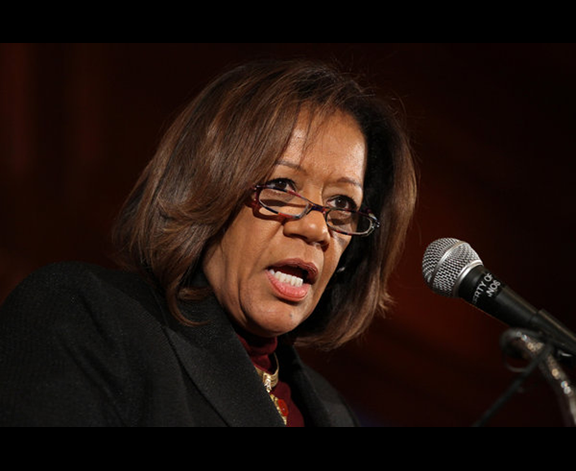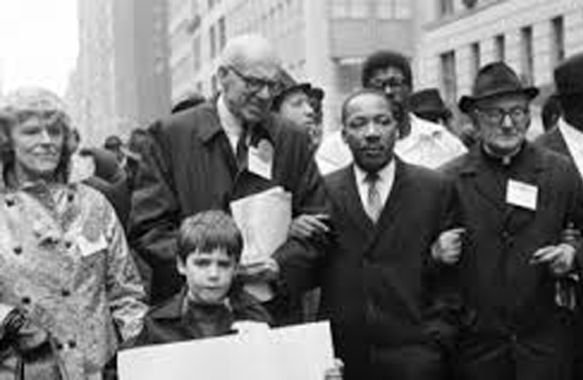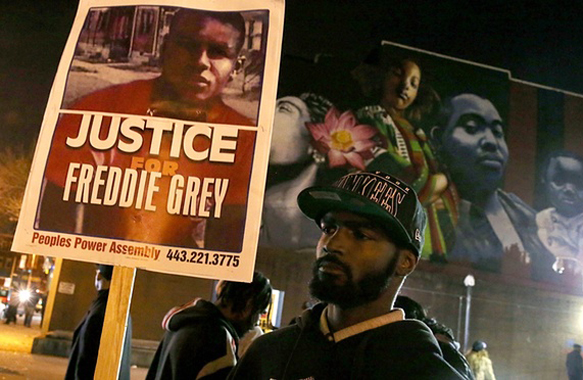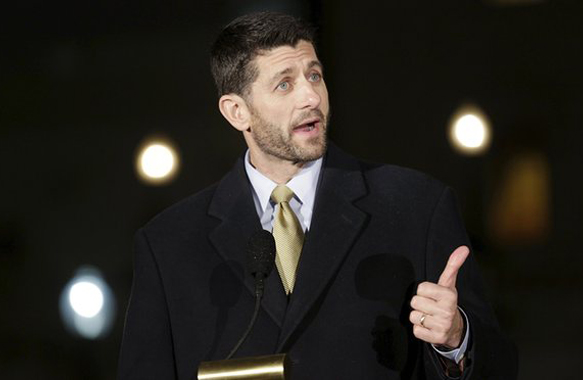Photograph; Chicago Public Schools CEO Barbara Byrd-Bennet
By Lauren Fitzpatrick | Originally Published at Chicago Sun-Times October 1, 2013 9:46PM
Chicago Public School officials have pledged not to close any more schools because of academic or enrollment problems for at least five years — but on Tuesday they made it clear they could close them for other reasons.
Schools CEO Barbara Byrd-Bennett wants the right this year to hasten the closure of schools already being phased out, or to close or consolidate schools “due to a safety hazard presented by the physical condition of the school,” according to a draft of guidelines the district released Tuesday.
As CPS children continue to transition from a record number of school closings this year, the district opened a new season of major school actions with the release of the guidelines it could use to drastically change schools this year.
CPS also could locate more than one school within the same facility if the total projected enrollment fits, according to CPS’ space utilization standards. The CEO also may consider safety, school culture, leadership, building quality and transition costs.
“We recognize the importance of balancing needed change with stability, and this committed to a five-year moratorium on proposing additional facility closures for reasons of under enrollment. We reiterate that commitment within those guidelines,” the proposal reads.
“We may have new school options that will require co-locations
School turnarounds — potentially replacing the entire staff — for poor academic performance, which are not governed by state law, may or may not be announced at the same time as closings and co-locations, as they were last year, according to the district.
CPS does not have to follow particular guidelines to determine which schools will have their staffs replaced. But the law does require CPS to host 21 days of community feedback for parents, Local School Councils and community members via surveys, emails and a citywide tele-town hall. Those details, not yet available, will be published on www.cps.edu/guidelines. Final guidelines will be released by Dec. 1, the same day the list of schools considered for actions is due.
Last year, in a process that closed more schools than anywhere in recent U.S. history, Byrd-Bennett lobbied Springfield to change the state law requiring actions to be announced Dec. 1 to March 31, saying as a newly-appointed CEO she wanted time to solicit community input upfront. She also said in November 2012 if she were granted the extension, she would impose a “moratorium on all CPS facility closures for the next five years.”
That was for academic or utilization reasons, district spokeswoman Becky Carroll said, adding, “The two criteria used over the last 10 years are off the table for the next five years.”
In March after months of public hearings, Byrd-Bennett released a list of 54 schools for the chopping block. At the last minute in May as the Board of Education was voting on closures, she knocked four more off the list. In June, 48 of those 50 approved schools closed; two more are phasing out over the next year or two.
Several other schools also are already in the phase-out process: Dyett High School, Crane Technical Preparatory High School, South Shore School of Leadership, Betty Shabazz International Charter-DuSable Leadership, ASPIRA Charter- Mirta Ramirez Computer Science, and Henry Ford Power House Charter High School.












Leave A Comment